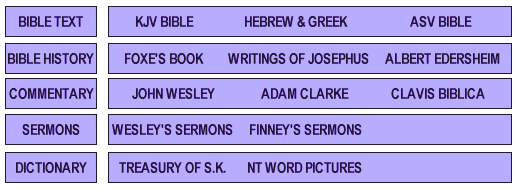

CHAPTER III
The names of those who rebuilt the walls of Jerusalem; and the part assigned to each person, 1-32.
NOTES ON CHAP. III
Verse 1. Eliashib the high priest] It was right that the priests should be first in this holy work; and perhaps the sheep gate which is mentioned here is that by which the offerings or sacrifices were brought into the temple.
They sanctified it] As they began with the sacred offering as soon as they got an altar built, it was proper that the gate by which these sacrifices entered should be consecrated for this purpose, i. e., set apart, so that it should be for this use only.
Verse 3. The fish gate] We really know scarcely any thing about these gates-what they were, why called by these names, or in what part of the wall situated. All plans of Jerusalem, its temple, walls, and gates, are mere works of conjecture; and yet how learnedly have some men written on all these subjects!
Verse 7. The throne of the governor] His house, and the place where he dispensed justice and judgment. Previously to the days of Nehemiah, Jerusalem was governed by a deputy from the Persian king; (see chap.
v. 15;) but after this time they were governed by governors and judges chosen from among themselves.
Verse 8. Goldsmiths.] From the remotest period of the history of the Jews they had artists in all elegant and ornamental trades; and it is also evident that goldsmiths, apothecaries, and merchants were formed into companies in the time of Nehemiah.
Apothecaries] Rather such as dealt in drugs, aromatics, spices, &c., for embalming, or for furnishing the temple with the incense consumed there.
Verse 9. Ruler of the half part of Jerusalem.] Probably the city was divided into two parts; one for Judah, and the other for Benjamin, each having its proper governor. Rephaiah mentioned here was one of these governors, and Shallum, mentioned ver. 12, was the other. There were other rulers or governors of particular country or village districts.
Verse 11. Repaired the other piece] That which was left by Jedaiah after he had repaired the wall opposite to his own house. Probably some of the principal people were obliged to repair those parts of the wall opposite to their own dwellings. Perhaps this was the case generally.
Verse 12. The son of Halohesh] Or, the son of the Enchanter: conjectured to be thus named from having the art to charm serpents.
The ruler of the half part] See on ver. 9.
Verse 13. The inhabitants of Zanoah] This was a town in the tribe of Judah. Josh. xv. 34.
Verse 14. Beth-haccerem] A village or town in the tribe of Benjamin. See Jer. vi. 1.
Verse 15. The pool of Siloah] This is probably the same as that mentioned by the evangelists.
The stairs that go down from the city of David.] Jerusalem being built on very uneven ground, and some hills being taken within the walls; there was a necessity that there should be in different places steps by which they could ascend and descend: probably similar to what we see in the city of Bristol.
Verse 16. The pool that was made] Calmet supposes that this was the reservoir made by Hezekiah, when besieged by Sennacherib, 2 Chron. xxxii. 4.
The house of the mighty.] Probably a place where a band of soldiers was kept, or the city guard.
Verse 19. The going up to the armoury] This was either a tower that defended the angle where the two walls met; or the city arsenal, where shields, spears, &c., were kept to arm the people in time of danger.
Verse 20. Earnestly repaired] He distinguished himself by his zeal and activity.
Verse 22. The priests, the men of the plain.] Some of the officers of the temple, particularly the singers, dwelt in the plain country round about Jerusalem, chap. xii. 28; and it is likely that several of the priests dwelt in the same place.
Verse 28. The horse gate] The place through which the horses passed in order to be watered; It was near the temple. Some rabbins suppose that in order to go to the temple, a person might go on horseback to the place here referred to, but then was obliged to alight, as a horse could pass no farther. Horses were never very plentiful in Jerusalem.
Verse 32. The goldsmiths and the merchants.] The word ╡yprxh hatstsorephim may signify smiths, or persons who worked in metals of any kind; but it is generally understood to mean those who worked in gold.
I have already observed, that the mention of merchants and goldsmiths shows that these persons were formed into bodies corporate in those ancient times. But these terms are differently rendered in the versions. The Vulgate is the same as ours, which probably our translators copied: aurifices et negociatores. The Syriac is, goldsmiths and druggists. The Arabic, smelters of metal and porters. The Septuagint, in some copies, particularly in the Roman edition, and in the Complutensian, Antwerp, and Paris Polyglots, have oi calkeiv kai oi metaboli, smiths and merchants; but in other copies, particularly the London Polyglot, for metaboloi we find rwpopwlai, seller of shields. And here the learned reader will find a double mistake in the London Polyglot, ropopwlai for rwpopwlai, and in the Latin version scruta for scuta, neither of which conveys any sense.
GOTO NEXT CHAPTER - COMMENTARY INDEX & SEARCH
